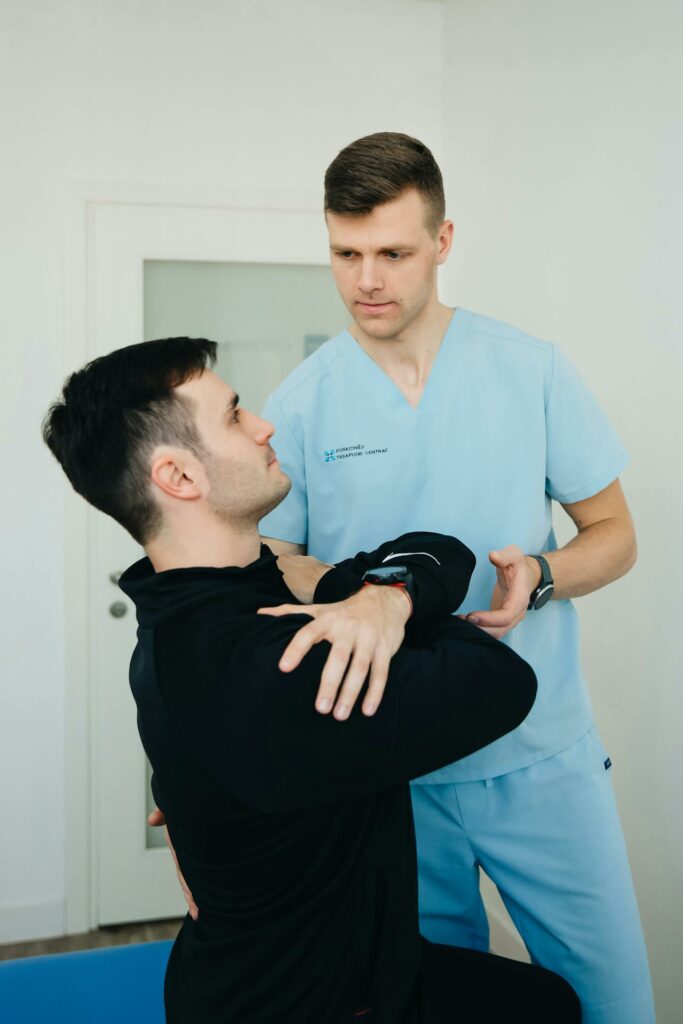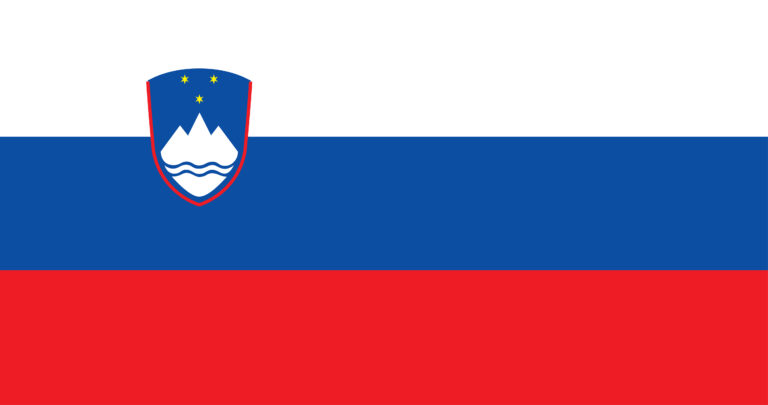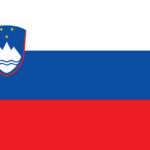Introduction
Physiotherapy plays a critical role in the healthcare system by helping individuals recover from injuries, manage chronic conditions, and improve mobility and overall well-being. As the demand for skilled physiotherapists grows globally, the profession has become an essential part of rehabilitation and preventative care across various medical fields, including orthopedics, neurology, and sports medicine. That is why you should choose Physiotherapy degree Bulgaria!
Bulgaria stands out as an accessible and reputable destination for pursuing a physiotherapy degree in Europe. With a structured educational system and increasing opportunities within the healthcare sector, Bulgaria offers aspiring physiotherapists a solid foundation in both theoretical knowledge and practical application. The country’s programs are designed to provide students with the expertise required to meet the demands of an evolving profession, while its position within the European Union ensures that the degrees are recognized across Europe and internationally.

In Bulgaria, physiotherapy degree programs are typically structured to provide comprehensive education, blending academic coursework with significant hands-on training.
Overview of Physiotherapy Degree in Bulgaria
The Bachelor of Physiotherapy degree in Bulgaria is a four-year program that awards 240 ECTS credits upon completion. The program is designed to offer a balanced education that integrates both theoretical foundations and practical skills. Throughout the course, students are exposed to a wide range of subjects, from the biomechanics of human movement to the study of various therapeutic techniques used to treat and rehabilitate patients with musculoskeletal, neurological, and other health conditions. The curriculum emphasizes rehabilitation methods, patient care, and developing an understanding of human anatomy and physiology.
A key feature of the Bulgarian physiotherapy degree is the emphasis on hands-on training. Students are required to complete a series of practical internships within healthcare facilities such as hospitals, rehabilitation centers, and private clinics.
Physiotherapy degrees in Bulgaria are offered by universities and specialized institutions, many of which are accredited by the relevant national and European authorities. These institutions follow stringent academic guidelines to ensure the programs meet the educational standards set by the European Union. This ensures that the degree is not only recognized within Bulgaria but also holds value across Europe and internationally.
The curriculum and training align with European educational norms, making it easier for graduates to pursue careers in other EU countries or engage in postgraduate education. This alignment is crucial in maintaining the mobility of professionals within the EU labor market, as it guarantees that Bulgarian-trained physiotherapists can seamlessly transition to other European healthcare systems.
Through a rigorous and comprehensive academic and practical education, students completing a physiotherapy degree in Bulgaria are equipped to pursue careers in various healthcare settings, such as hospitals, private clinics, sports rehabilitation centers, and community health organizations.
Curriculum Structure and Key Areas of Study
The Bachelor of Physiotherapy degree in Bulgaria is carefully structured to equip students with the essential knowledge and skills necessary for effective practice. The curriculum covers a broad spectrum of subjects aimed at developing a deep understanding of human movement, injury rehabilitation, and patient care.
Core subjects in the program typically include musculoskeletal rehabilitation, where students study the anatomy, mechanics, and treatment methods for musculoskeletal disorders and injuries. This includes learning about joint mobilizations, therapeutic exercises, and post-operative rehabilitation techniques.
Neurological physiotherapy is another fundamental area, focusing on the rehabilitation of patients with neurological conditions such as stroke, spinal cord injuries, and neurological disorders like Parkinson’s disease. This module emphasizes specialized therapeutic techniques and adaptations required for these patients.
A strong emphasis is also placed on patient care techniques. Students learn not only the practical aspects of physiotherapy but also how to communicate effectively with patients, assess their needs, and create personalized rehabilitation plans. The curriculum also covers the principles of clinical practice, where students are taught about the latest research, ethics, and the practical application of evidence-based treatments.
Practical Training and Internships
During their studies, students complete internships in various healthcare facilities, such as hospitals, rehabilitation centers, private clinics, and sports facilities. These internships allow students to work under the supervision of experienced physiotherapists, giving them exposure to a diverse range of patients and treatment methods. The hands-on experience gained through internships is vital for students to develop proficiency in therapeutic techniques, patient assessments, and treatment planning.
Internships also play a crucial role in fostering professional development. Through direct interaction with patients, students learn how to manage complex cases, handle various treatment modalities, and develop their interpersonal communication skills. By experiencing different clinical environments, students gain insight into the day-to-day responsibilities of a physiotherapist, from collaborating with other healthcare professionals to ensuring patient safety and comfort.
Admission Requirements
To be eligible for a Bachelor of Physiotherapy program in Bulgaria, prospective students must meet several general admission requirements. The most basic criterion is the possession of a high school diploma or its equivalent. This serves as the foundational requirement for entry into the program. In some cases, universities may also require students to pass an entrance exam, which typically assesses subjects relevant to the field of healthcare, such as biology or general science.
For international students, the application process involves submitting academic transcripts and documentation that verifies the equivalence of their secondary school qualifications to Bulgarian educational standards. Applicants may also be required to provide proof of language proficiency. While some universities in Bulgaria offer programs in English, a majority of physiotherapy degree courses are taught in Bulgarian, so proficiency in the Bulgarian language may be required. This can typically be demonstrated through a language test or certificate.
Additionally, students may need to provide a medical certificate confirming that they are physically fit to undertake the program. It is advisable for international applicants to begin the application process early to allow sufficient time for visa processing and other logistical arrangements.
Certifications and Post-Graduation Opportunities
After completing a Bachelor’s degree in Physiotherapy, graduates in Bulgaria have various options to further their education and enhance their professional qualifications. One of the primary paths is pursuing specialized certifications in areas of physiotherapy that align with personal interests or emerging healthcare needs. Specialized certifications can be pursued in fields such as sports physiotherapy, neurological rehabilitation, orthopedic physiotherapy, and pediatric physiotherapy.
In addition to specialized certifications, graduates may also choose to continue their studies by enrolling in a Master’s program in Physiotherapy or related fields, such as rehabilitation sciences or sports medicine. These programs provide deeper knowledge and research skills, preparing students for leadership roles or academic careers in physiotherapy. Master’s degrees can also open the door to roles in healthcare management, teaching, or research positions in universities or research institutions.

Furthermore, career prospects for physiotherapists in Bulgaria are diverse. After completing the Bachelor’s degree and potentially earning additional certifications, physiotherapists can pursue careers in hospitals, private practice, sports clinics, and rehabilitation centers. There is also increasing demand for physiotherapists in specialized areas such as sports teams, where physiotherapists play a crucial role in injury prevention, rehabilitation, and performance enhancement.
Graduates may also find opportunities to work in international healthcare systems, particularly in European Union countries, as Bulgarian physiotherapy degrees are recognized within the EU.
Physiotherapy Career Opportunities in Bulgaria
The demand for physiotherapists in Bulgaria has been steadily increasing in recent years, driven by an aging population, rising awareness of physical rehabilitation, and a growing emphasis on preventative care. As healthcare services continue to evolve, the role of physiotherapists is becoming more critical in improving the quality of life for individuals suffering from musculoskeletal conditions, neurological disorders, and post-surgical recovery.
Hospitals offer one of the most prominent career paths, where physiotherapists are involved in the rehabilitation of patients with conditions ranging from stroke and spinal cord injuries to post-operative recovery.
Private clinics also provide opportunities for physiotherapists to specialize in areas such as musculoskeletal rehabilitation, sports injuries, and pain management.
Working in sports facilities is another option, where physiotherapists assist athletes in injury prevention, performance enhancement, and rehabilitation.
Rehabilitation centers are increasingly important, as more individuals seek long-term care for chronic conditions, requiring skilled physiotherapists to support their recovery.

In addition to traditional employment, there is also a growing trend of freelance work in physiotherapy. Many physiotherapists in Bulgaria are opting to work independently, offering home visits, specialized services, or working in collaboration with multiple clinics. Freelancing offers greater flexibility, the ability to build a diverse client base, and the opportunity to specialize in specific areas of physiotherapy, such as sports or pediatric care.
Both the public and private sectors offer a range of opportunities, with positions available in public hospitals, clinics, and government-funded rehabilitation programs, as well as in private practices, sports teams, and specialized rehabilitation centers.
Physiotherapy Associations in Bulgaria
The Bulgarian Association of Physiotherapists (BAPT) plays a central role in supporting the physiotherapy profession in Bulgaria. As the official professional body for physiotherapists, the BAPT works to promote the value of physiotherapy and ensure the continued development of the profession. The association is dedicated to advocating for high standards of practice, improving healthcare policies related to physiotherapy, and representing the interests of physiotherapists both nationally and internationally.
One of the primary functions of the BAPT is to offer continuous education and professional development opportunities for physiotherapists. The association organizes workshops, conferences, and seminars, providing members with access to the latest research, treatment techniques, and technological advancements in physiotherapy.
The BAPT also plays a vital role in the certification process for physiotherapists in Bulgaria. The association provides guidance on required qualifications, continuing education, and specialty certifications, ensuring that physiotherapists meet the national and international standards of practice. Furthermore, the BAPT actively advocates for the recognition of physiotherapy as an essential healthcare profession, working to improve the visibility and role of physiotherapists within the Bulgarian healthcare system.








